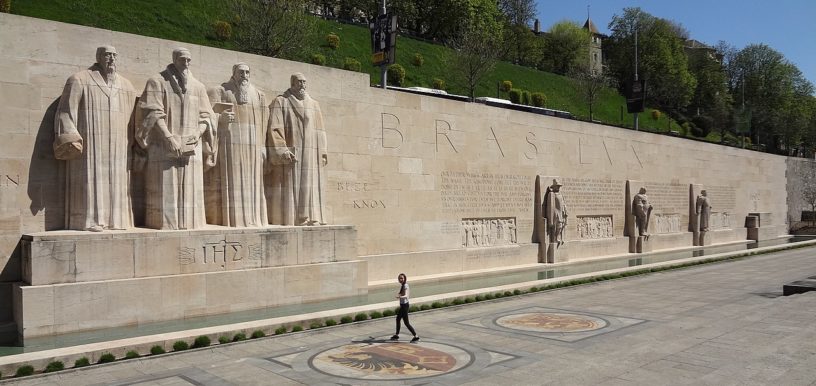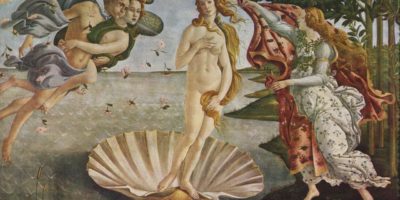Top 10 Facts about the Reformation
Top 10 Facts about the Reformation
It has been more than 500 calendar years since The Reformation, alternatively referred to as The Protestant Reformation. The renewal started when Martin Luther nailed his 95 Theses to the Castle Church entryway in Wittenberg, Germany, on October 31, 1517.
Numerous houses of worship commemorate Martin Luther’s’ 95 Theses, particularly in the Reformed custom, on the last Sunday of October or, on November 1.
The Protestant Reformers accepted that they were reinstating the centrality of Scripture inside the Christian custom. Luther’s underlying standard debate with the Roman Catholic Church principally identified with administrative maltreatment, particularly the selling of indulgences. “The Church’s actual fortune is the Gospel of Jesus Christ,” Luther announced.
The Protestant principle of avocation by conviction alone and the priesthood quorum of all devotees are two fundamental convictions that formed Protestantism and capably changed the direction of Western Civilization. A large number of the innovative thoughts of Democracy came out of the priesthood, everything being equal, sola scriptura, and Presbyterian type of chapel government.
Luther “accomplished more than any single man to make present-day history the improvement of the upheaval,” announced the nineteenth-century English student of history Lord Acton.
In this article, you will explore the top 10 facts about the Reformation.
1. Luther may not have necessarily started the Revolution.
Students of history ordinarily date the beginning of the Protestant Reformation to the 1517 distribution of Martin Luther’s “95 Theses”.
Its closure can be set anywhere from the 1555 Peace of Augsburg, which took into consideration the concurrence of Catholicism and Lutheranism in Germany, to the 1648 Treaty of Westphalia, which finished the Thirty Years’ War.
The critical thoughts of the Reformation—a call to filter the congregation and a conviction that the Bible, not custom, ought to be the sole origin of otherworldly positions—were not themselves new. In any case, Luther and different reformers turned into the first to utilize the intensity of the print machine to give their thoughts a vast crowd.
2. Luther was neither Protestant nor Lutheran
At the point when he nailed his 95 Theses to the entryway of the house of worship, Luther was a Roman Catholic. As referenced before, Luther was hoping to change a confidence custom where he was a ministry part and doctrine instructor at the University of Wittenberg. Luther posted his theories, which spread all through Europe quickly, so there could be a discussion on the issue.
Luther expressed that he figured the entire issue resolution would occur after Pope Leo X amended those whom Luther accepted had blundered.
Afterwards, Luther, designated “Scriptural”, did not care for the expression “Lutheran.”
3. The Reformation included rediscovery of work by the Spirit.
In 1524, Desiderius Erasmus distributed a verbal attack on Luther. Erasmus was Europe’s leading outstanding scholastic. Erasmus thought individuals previously had enough force in themselves to do great.
He characterized ‘free’ decision as “an intensity of the human will where a man can put forth a concentrated effort on activities leading to everlasting salvation or distance from them.”
Luther answered, “You don’t understand the amount you credit to it by this pronoun ‘itself’— its one of a kind self! — by stating it can ‘put forth a concentrated effort’; this implies you prohibit the Holy Spirit with all His capacity, as pointless and redundant.”
According to Erasmus, we simply need to invest more energy.
Luther understood our concern was substantially more cardinal than that. Our concern is not that we are sluggish or oblivious — it is that we are aberrant where it counts to the very centre of our being. Thus, in case we are ever going to satisfy God, we need a radical internal change. Furthermore, it is the thing that the Holy Spirit does.
4. Luther’s Hymn “A Mighty Fortress” speaks of the Reformation.
You will note this psalm regularly played and sung in numerous Protestant holy places on a Sunday when they have the Reformation Day service. The words written by Luther are a free rework of Psalm 46.
At the memorial service for previous President Dwight D. Eisenhower (1890-1969), they sang the mainstream psalm.
5. Reformation Day is a public holiday in Chile
The holiday celebrated on October 31 is, however, dependent in Chile. In Chile, it may be moved to a Friday depending on which day of the week it appears.
In Chile, you call this day, ‘Día Nacional de las Iglesias Evangélicas y Protestantes’. Officially established as a holiday in 2008, It is usually celebrated on October 31. However, it may be commemorated the following Friday if it falls on a Tuesday, or to the preceding Friday if it fell on a Wednesday.
6. Ladies Were Instrumental in the Reformation
Ladies are frequently kept separate from the story, yet they were instrumental during the Reformation. They played various fundamental jobs – they were nuns, spouses of critical players, eminence, researchers, and that is only the tip of the half of it. One of these models was Marie Dentiere, who was a piece of an Augustinian religious community — however before long left to join the reformers.
Marie Dentiere was a reliable advocate of the change in Geneva, frequently standing up out in the open places and composing a handout to the people of Geneva about God’s aims for the city. Due to the nature of her work, Geneva turned into a Protestant republic.
7. There Have Been Many Reformations throughout History
The Reformation of 1517 is perceived as the start of the Protestant Reformation. It was not the first concern the congregation tried to change. In the early hundreds of years of the church, contradictions prompted the change, including the judgment of Gnostic sins and various discussions over the idea of Christ.
Medieval reorganizations administered by the Popes Gregory I and VII rebuked ministry who were misusing their capacity to take property and organized administrative chastity.
Additionally, while numerous individuals think about “The Reformation” as a solitary crossroads ever, it indeed was a development that included many key players, a few unique areas and traversed a couple of decades.
8. The Printing Press Played a Vital Role
Johann Gutenberg’s creation of the print machine around 1448 significantly affected the spread of opinions in Europe and past. Printed innovation traversed Europe and assumed a crucial job in the accomplishment of the Protestant Reformation.
Luther just lectured few individuals — however — the printed Word could spread his message to thousands more — alongside permitting the thoughts of the Reformation to an extent they would never have had the option before.
The print machine additionally put increasingly Germanic-language Bibles in a good flow, a success for the Protestant church. Notwithstanding, Luther perceived that a similar print machine he was utilizing to spread his message could likewise be used to spread the news that he could not help contradicting, including Calvinism, scepticism and secularism.
9. The Revolution Boosted Literacy
The Protestant Reformation moved the spread of literary proficiency. This was because one of its accentuations was close to home devotion and apportionment of Scripture, including the utilization of instructions for kids.
In Germany, general education was as low as five per cent in rural zones, with the urban proficiency topping at 30%. Most researchers have inferred that the Reformation enormously propelled proficiency since Protestantism, considerably more than Catholicism was a religion of the Word — Therefore of perusing.
This is since it demands each individual’s entitlement to encounter the Word themselves. Perusing was elevated to empower everybody to practice this right.
As indicated by the Past and Present Society, Bibles were accessible and schools built up. Luther transformed Scripture into everyday German, where vast amounts of Bibles were issues from the presses, grade schools raised, and where reformers urged people to look for God’s Word straightforwardly, which made a general education.
10. Martin Luther Might Not Have Nailed His 95 Theses to the Door at Wittenberg.
You are acquainted mainly with the pictures of Luther nailing the 95 Theses to the entryway at Wittenberg. Yet, a decision has not been made on whether he truly nailed the postulations to the entryway. The 95 Theses laid out Luther’s contest against administrative maltreatment and this is viewed as the underlying impetus for the Protestant Reformation.
Most public records of history depict Luther forcefully nailing the propositions to the entryway, a very ground-breaking picture. In any case, it is questionable whether he did that since accounts are changed, and some are from individuals.
Planning a trip to Paris ? Get ready !
These are Amazon’s best-selling travel products that you may need for coming to Paris.
Bookstore
- The best travel book : Rick Steves – Paris 2023 – Learn more here
- Fodor’s Paris 2024 – Learn more here
Travel Gear
- Venture Pal Lightweight Backpack – Learn more here
- Samsonite Winfield 2 28″ Luggage – Learn more here
- Swig Savvy’s Stainless Steel Insulated Water Bottle – Learn more here
Check Amazon’s best-seller list for the most popular travel accessories. We sometimes read this list just to find out what new travel products people are buying.















